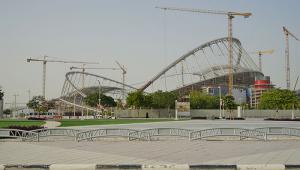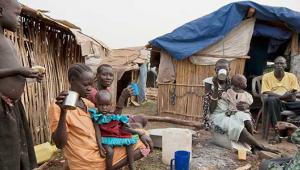The agreement with the UN at the weekend is in addition to $10m that Qatar has already allocated to 94,000 poor Gazan families, which each received $100 in cash.
Jamie McGoldrick, the UN’s humanitarian coordinator for the Palestinian territories, tweeted (below) that this was an “important step for boosting the Palestinian economy”.
This evening, the Chairman of the #Qatar|i Gaza Reconstruction Committee, H.E. Mohammed Emadi and myself, on behalf of the #UN in the oPt, signed an MoU of USD 20 million for cash-for-work programmes in #Gaza. An important step in boosting the #Palestine|ian economy. pic.twitter.com/zXwi9D1Voa
— Jamie McGoldrick (@jamiemcgoldric8) 27 January 2019
The latest finance will be distributed to the UN over the course of the next year as part of an overall $150m that Qatar is giving Gaza, with the initial $20m to set up a job creation project.
As part of the grant, Qatar had allocated Hamas – Gaza’s governing authority since 2007 – funds to pay the salaries of thousands of civil servants that Hamas has been unable to pay.
The western-backed Palestinian Authority in the occupied West Bank – which is locked in a power struggle with Hamas – refuses to pay those salaries as well.
However, Hamas refused to accept the money, claiming that Israel had broken agreements about how the financial arrangements should be carried out, Reuters reported.
Instead, Qatar decided to give the money through the UN directly to families struggling because of the conflict.
Qatar’s lead for Gaza relief efforts Mohammed Al-Emadi said: “It was agreed to allocate the Qatari financial grant to pay for humanitarian projects with full cooperation and coordination with the United Nations.”
A Hamas official on Friday welcomes the decision to give money to humanitarian projects.
Government workers have found themselves in the middle of a power struggle between Hamas and the Palestinian president Mahmoud Abbas.
Hamas wants to pay the civil servants but does not have enough money after years of Israeli-led blockades and wars. Wages have already been cut in half for several years and payments are often behind schedule.
By refusing to pay, President Abbas hopes worsening economic conditions in the country can force Hamas to negotiate.
Abbas is to reshuffle the government this week, with the prime minister, Rami Hamdallah, expected to be replaced.
In December last year the UN said the need for aid in the occupied Palestinian territory has increased, following a year that has been a “serious deterioration in the humanitarian situation”.
It called for at least $350m to assist 1.4 million people in Gaza and West Bank. The World Bank said last summer that there is a lack of progress towards peace and reconciliation in West Bank and Gaza.







